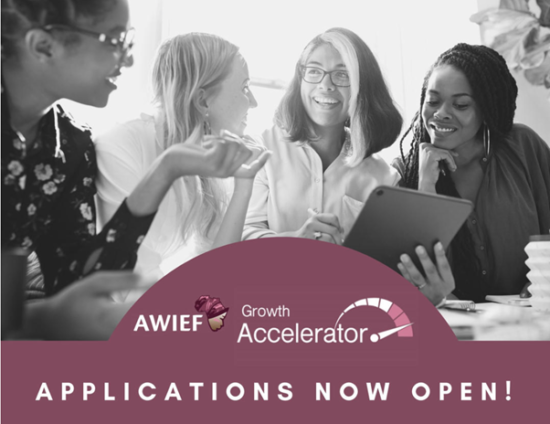Are digital tools and technologies a driver of women's inclusion? That was the issue addressed on the 2nd of October in Paris, by Digital Africa, through a round table organized at their premises with five high-level panelists
Kat BORLONGAN, Director of French Tech Mission (France);
- Stéphan-Éloïse GRAS, CEO at Digital Africa (France);
Charlotte LIBOG, Founder of Afrique Grenier du Monde (Cameroon);
- Aphrodice MUTANGANA, ex-fondateur et directeur général de KLab (Rwanda) ;
Juliana ROTICH, founder of Ushahidi (Kenya)
In presence of a number of African women entrepreneurs. The subject is at the heart of Digital Africa's concerns, an initiative that aims inclusive development through Africa's innovation.
"If we cannot mobilize all of our talents, especially women, who are not a minority, we will not be able to propose an alternative solution to GAFA"
A commitment shared by the "French Tech", the platform that is linking French digital actors. "Why is technology so important why everybody cares about it? Tech is not another gadget! If we look at the "Next 40" in France, it is a 30% creation job rates, even during a crisis. However, most of our technologies come from America and mainly China. If we cannot mobilize all of our talents, especially women, who are not a minority, we will not be able to propose an alternative solution to GAFA. I cannot see a world where our children will sell great technologies without creating those."
Sharing their experiences and point of view, the participants mention one after the other, progress in women inclusion thanks to digital... The obstacles that remain also.
"20 years from now, 800 million people will be in the working-age population. What do we do?"
The only man around the table, the Rwandese Aphrodice MUTANGANA, who came especially for the occasion, expressed his country's experience in that particular mater. Rwanda put digital in the center of its development model, and women are the recipients and the promoters of this movement. And with some result, since Rwanda is one of the world champions concerning parity. According to him, this success is due to the Rwandese digital ecosystem that reunites every actor from startuppers to rulers, investors, and training centers. The young man insists on training and highlights the importance of another factor, culture.
Today, in Rwanda, we start to understand the role women can play, and we establish adapted policies.
"Today, in Rwanda, we start to understand the role women can play, and we establish adapted policies." For him, acing this challenge will go through the basics and training. "10 years from now, Africa will have to create more than 230 million jobs with technologic competences. In 20 years from now, 800 million people will be in the working-age population. The calculation is easy; every country will have to create at least 14 million jobs. It is not simple, not to say impossible. What do we do? We are training a new generation."
Through the platform Coder Africa, he is starting online training cycles, specially dedicated to women. "We start with 35 women who will learn how to code with the USSD system. After 30 days, they will be able to negotiate with telecom operators. Because starting with USSD data, we can predict, integrate algorithms, and propose advanced technologies.
"We need more training, more investments, to ensure that there will be more women engineers in the coming generation"
Get the coming generation ready is also a concern for Juliana ROTICH, and she takes the example of her country, Kenya. She mentioned incubators and specific programs dedicated to women, such as Akirachix - a network that allows young girls and women coming from poor neighborhoods and excluded from the digital sector, to train - and the evolution of the Kenyan tech ecosystem. She insists: "We still need to work to create links between women. We need more training, more investments to ensure that there will be more women engineers in the coming generation."
"It is a digital revolution that meets a need, the promotion of our leadership"
In this domain, digital allows women "to fight on equal terms with men," Charlotte LIBOG says. "In Cameroon, like all over Africa, what happened with digital is innovative. For the first time, women play on a field where they do not have to fight because they are women. And it concerns access to training, fundings to conciliate a professional and familial life... Digital allows women to be more visible. It is a digital revolution that meets a need, the promotion of our leadership."
A reality remains: women catch only 6% of the amount raised in Africa, and between 20 and 30% of women stay in the real economy as Stéphan-Éloïse GRAS highlighted: "The same observation can be seen everywhere. There are still efforts to make when we know the digital economy is more and more important in our activities, especially in the Covid-19 context." A crisis, which could be taken as an opportunity, she wondered.





